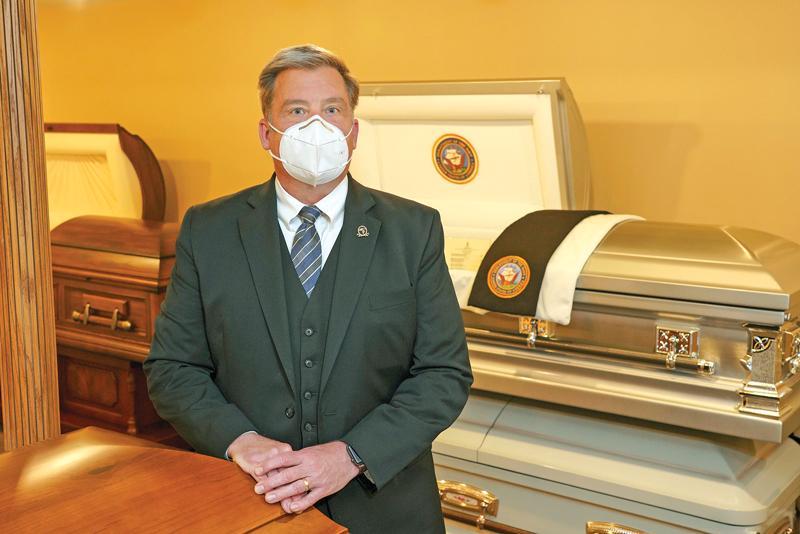“The pandemic ushered us into a whole new world of technology,” says Dutch Nie, CEO of the three-generation family business. They’d already offered webcasts, but “people didn’t seem to have much interest in them,” Nie says. When the novel coronavirus hit, “that changed overnight.”
Instead of meeting families in person, now they’re making plans online or on conference calls. “In the past, only the family members in the area made the arrangements; now we have the opportunity to involve all the family members, no matter where they live.”
That was the case when a couple, both natives of the Philippines, died of Covid-19, and their daughter in the U.S. tested positive for the disease. A brother and son coordinated the arrangements for the local visitation and service, and Nie set up a webcast and a Zoom meeting with relatives in the Philippines, videotaping the interactions and posting them to the family’s online pages.
“It’s difficult for a profession to see families suffer alone,” says Dutch Nie’s son Jake, grandson of founder Doug Nie. “We’ve had to change many practices overnight, thanks to the pandemic.”
Funeral homes are required to keep their doors locked. Masked and gloved staff members open them only by appointment for masked visitors. The staff will even sign guest books for them, if they wish. Otherwise, Nie’s staff remains behind glass while the visitors pay their respects. Once a visitor leaves, the areas involved are sanitized once again.
Many families are postponing services until social distancing restrictions are lifted. “People in our profession used to say, ‘Wedding planners get six months to plan a ceremony; we get three days,'” Nie says. “Now we’re like the wedding business, scheduling services months in the future, with flexible dates. We have plans for ceremonies in July and August, but they’re fluid right now, depending on what happens between now and then.”
“Burials are more challenging than you might think,” Jake Nie adds. “Every cemetery has its own rules and regulations.”
Before guidelines were relaxed in June, no more than ten people could attend a burial, says Walter Sperry, who oversees burials at Arborcrest Memorial Park and has buried five victims of Covid-19. If there were more than ten mourners, they’d either “rotate in and out of cars or witness the graveside ceremony from farther away.”
Brad Bouchie is sexton for five cemeteries, among them Bethlehem and Fairview. “I’ve been in the business fifteen years, and I never had to wear gloves and masks before this. Now we wear gloves and masks, and we don’t touch the casket.
“I expected we’d be very busy here now, but Washtenaw hasn’t been hit like Oakland, Macomb, and Wayne counties. We’ve been fortunate. Before the virus, we averaged four or five funerals a month, and we haven’t had many more than that.” Some families decided to cremate their family members and wait until the gathering regulations change. And with elective surgeries postponed and everyone staying home during the shutdown, fewer people were “dying on operating tables or in car accidents.”
Before the pandemic, Bouchie had a schedule of spring interments for “snowbirds” who died out of state. So far, he says, every one of those ceremonies has been canceled, with no new dates on the calendar yet.
